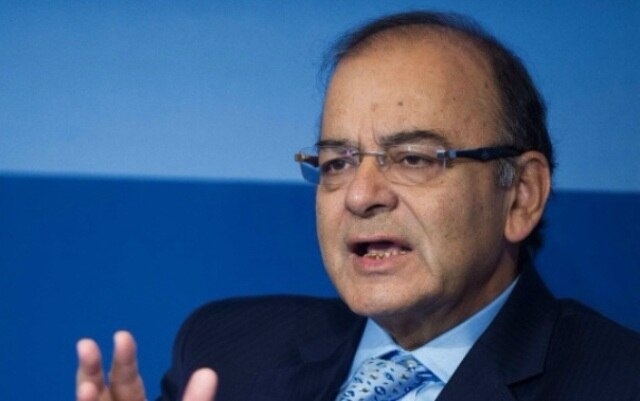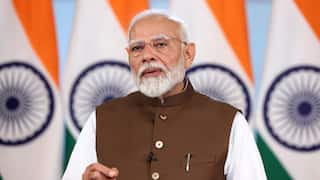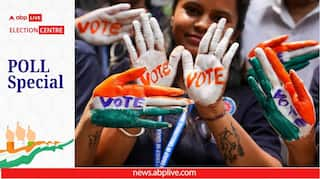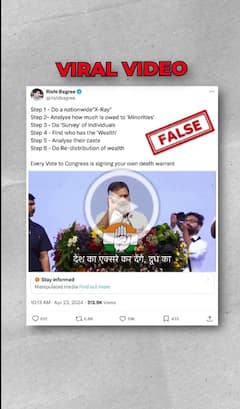Explorer
Advertisement

Will Jaitley Halve Corporate Taxes On February 1?

Key Indian financial policy inputs have come from a series of highly qualified US-backed World Bank(WB), International Monetary Fund (IMF), Washington think-tank/American academia nominees, for over 25 years now.
The latest buzz from such quarters is the suggestion that India should halve India’s corporate tax from near 30% to a 15 to 18% band. This may be less than Pune think-tank Arthakrantiasking for its abrogation, but it has gained urgency after the upset Trump presidential victory.
Not only is Republican Trump a life-long businessman used to making hard-nosed deals, but he is clear that it must be beneficial to America in his new take-no-salary-for-the-job avatar.
He wants to ‘Make America Great Again’ and is already under pressure to reduce US corporate taxes to 15% likewise. This, to fulfil his pledge to retain, if not return, manufacturing to American shores.
He also proposes to renegotiate trade terms with China, and India could do well by standing by as a worthwhile alternative.
India, similarly looking for ‘Make in India’ high-tech and mammoth defence manufacturing projects, does have a wage cost advantage if it drops its taxes, despite increasingly wide use of robotics.
The promise of massive state-of-the-art military equipment manufacturing for the Indian Armed Forces and export is most alluring.
Several reports have said that our chaotic demonetisationprocess was also carried out at American behest to promote a profitable digitisation push, the largest on earth.
The suggested reduction of corporate taxes could well follow on, as early as budget presentation day on February 1, 2017.
If so, it is sure to be amplified by the roll-out of the online General Sales Tax (GST) regime later in the year.
The Indian citizen is used to gaining lateral benefits arising out of such global diplomacy. But this time it could come with an expected lowering of income tax rates, or even its abolition, to be replaced by a universal bank transaction tax.
The Indian Government, in need of international support led by the US after the USSR went into decline, has tamely acceded to this influence over the years. This even as China rose and rose simultaneously, to eventually pose a challenge to US supremacy.
It might be a form of hegemony, but certainly no worse than the erstwhile command and control Soviet version, or a possible Chinese domination.
Being capitalist in refrain, it is also the most political way to bring about economic reform here, giving our politicians a chance to shrug and abdicate responsibility.
We would have otherwise stayed hog-tied to a history of welfare sop socialism, still most popular with Indian netas, and Stalinist trade union strangleholds. Think of the fireworks expected from the reformist hire and fire labour law on the anvil!
Prime Minister Narendra Modi may put India first, but today our military ally America cannot be denied for the sake of an indifferent status quo.
This particularly when our other key military collaborator Russia, and oil supplier Iran, have already joined the China Pakistan Economic Corridor (CPEC). They need its benefits, irrespective of Indian sensitivities.
Pakistan has even had the cheek to ask India to join, even as the CPEC runs through Pakistan-occupied Kashmir (PoK).
Besides, the only hope of slowing the CPEC juggernaut and giving the Indo-Japanese-Iranian Chabahar port a chance is via US diplomacy. More so, because Trump has little use for the United Nations (UN).
And this applies to Indian hopes of joining the NSG despite China publicly frowning on India’s successful Inter-Continental Ballistic Missile (ICBM) programme.
Besides, we owe our very first stage of liberalisation, the dismantling of the Licence-Permit-Quota Raj in 1991, to this benign dictation from Washington, DC.
The citizens of India have got the luxury of personal options, much greater prosperity, progress, infrastructure modernisation, GDP growth, all thanks to this American influence.
This thought invasion-from-the-inside phenomenon is more or less an open secret, despite professions of a heightened nationalism under the present regime.
And it persists, even though India’s reliance on aid and the lending of multi-lateral agencies, including the Asian Development Bank (ADB) and BRICS Bank, has reduced or stopped over the years.
We now favour the aggressive promotion of foreign direct investment (FDI), and presently it is indeed at unprecedented highs.
Nevertheless, these distinguished policy wonks continue to be air-dropped into the Finance Ministry, the erstwhile Planning Commission, the current Niti Aayog, the Reserve Bank, etc, happily, to open up the taps some more.
The process began after the Indira Gandhi era, ever since 1985. Young ‘Computerji’ Rajiv Gandhi, as Prime Minister,started the ideological opening up during the presidency of Republican Ronald Reagan, much admired by Donald Trump.
What does America gain from it? Access to one of the biggest markets in the world, and yes, hegemony in an important geopolitical sphere in Asia.
So Finance Minister Arun Jaitley who had pledged to bring down corporate taxation to 25% over five years, may have to get his skates on.
Disclaimer: The opinions, beliefs and views expressed by the various authors and forum participants on this website are personal and do not reflect the opinions, beliefs and views of ABP News Network Pvt Ltd.
Follow Blog News on abp LIVE for more latest stories and trending topics. Watch breaking news and top headlines online on abp News LIVE TV
View More
Advertisement
Advertisement
Advertisement
Advertisement
Trending News

for smartphones
and tablets
and tablets




























